Source: Duży Format, June 11th 2007
Interviewer: Katarzyna Bielas (with simultaneous translation from Hebrew by Michał Sobelman)
Translation from Polish for this blog: (beta version) MoPoPressReview
Interview with Yossi Avni-Levy, Deputy Ambassador of Israel in Poland, former intelligence agent, historian, lawyer, and writer. He lived and worked in Berlin, Bonn, Belgrade and Warsaw. He published four books (his début was a collection of short stories in 1995). Ciotka Farhuma nie była dziwką (Auntie Farhuma was’t a whore after all) is his first book published in Poland.
Yossi Avni is his pseudonym.
* * *
 Katarzyna Bielas: In your book there is a scene, in which the main character Jonatan and his partner Arik are purchasing a flat in Tel Aviv. When they haggle its price, Jonatan notices a camp number on the landlady’s arm. Without hesitation, he deciphers it – the date, the transport, the camp. Surprised woman drops the price, he agrees, and then feels distaste.
Katarzyna Bielas: In your book there is a scene, in which the main character Jonatan and his partner Arik are purchasing a flat in Tel Aviv. When they haggle its price, Jonatan notices a camp number on the landlady’s arm. Without hesitation, he deciphers it – the date, the transport, the camp. Surprised woman drops the price, he agrees, and then feels distaste.
Yossi Avni-Levy: I still feel it. But it was no manipulation, I just saw the number during the conversation and recited what came to my mind, the first association. I remember that this elderly lady was from Austria.
There is a lot of my biography in that book.
You were born in Israel. Where does that camp knowledge come from?
Even when I was a child I was interested in Holocaust.
My parents didn’t come from Europe, and aren’t Holocaust victims. My mother comes from Iran, father from Afghanistan. Mum used to send me to library, so that I wouldn’t become a thug, but I wasn’t looking there for Verne’s stories or romances, but books about Holocaust. One day the librarian said “Dear child, this isn’t good for you to read things like that, this is difficult even for grown ups” – but I saw in his eyes that he was pleased. I was borrowing the books, and learning everything by heart: the number of murdered in each camp, names of German commanding officers, camp identifications by number. I was like addicted to that evil magic. I became a little expert on Shoah.
Everyone, my non-European family, and that woman from Austria, we constituted a community, and that community made me a boy, who – not literally – was saved from Shoah. Because of that, Holocaust has become maybe the most important thing in my life.
 What does it mean? When did you first hear about Holocaust?
What does it mean? When did you first hear about Holocaust?
Holocaust has always been like a magnet for me, that attracted me to pain. I keep asking myself, when did it start.
I remember, when I was eight, teacher standing before our class and explaining what had happened. I heard “those who were saved” came to Israel. In Hebrew “to be saved” has the same core as “to fry on fire”. In my imagination I saw Germans grilling people. Those, who made it to survive, are my neighbours, people I meet in the street.
At school I was one of few Sephardim – Jews from the East – among many Ashkenazim, who have come from Europe. When I was ten, I had this imaginary aunt, her name was Batsheba. She came from Afghanistan to Crimea, where in 1943 like other Jews, she died in boats that were being sunk by the Germans on The Black Sea.
That imaginary aunt was a way I identified myself with European Jewry, I wanted to feel like my friends, whose parents remained in Treblinka.
 Did you feel you were outside the community? How were you educated?
Did you feel you were outside the community? How were you educated?
No, I didn’t feel excluded.
In the sixties and seventies Shoah was constantly present in our lives. On Holocaust Day, I remember, television used to show terrible documents, and pictures. My whole family gathered around the TV set, with mouths open and fright in their eyes. There wasn’t a single noise in the whole neighbourhood, only blue television light visible in every window, and people were like hypnotised with the nightmare. It’s the stamp of suffering we bare. I myself stood there , I gave myself to it, hypnotised.
However, if I am to be frank, this magnet is in my case an issue connected with my psyche. My friends don’t have it.
This pain is something I can hug to, with my private sadness, I need it, it’s like my emotional anchor.
Even now – and I am in my fourties – I have no answer to why it is so.
That reminds me of Arik. When his reltionship with Jonatan collapsed, he said that he doesn’t want to be happy, that he puts up resistance, because he thinks he doesn’t deserve.
There are people who are not looking for happiness. Sadness is their true home. Sometimes I accuse myself, that I adopted sadness as my inner ID, as the most comfortable solution, to live in a dark cloud all the time. I don’t know why.
People, who know me, say ‘Yossi you’re so joyful with us, having fun, telling jokes, but when you write, your pen is dipped in tragedy. Which of these two is the real Yossi?’
 Which?
Which?
I don’t know. Maybe writing is the road to getting to know yourself – and to liberation. I write about things closest to my heart. When after some time, I read what I have written before, I start to know who I was then. I’m changing. I wouldn’t have written now, what I wrote in early nineties in ‘The Garden of Dead Trees’ for instance.
You wouldn’t have written what?
I wouldn’t have written about the inferiority complex as I did then. It’s a very private matter.
My family, like the whole Sephardi community always wanted to be someone else, more beautiful, richer, better, educated, more like the Jews from Europe.
To go on concerts, take taxis, dine in restaurants, eat gefilte fisz, speak low voice.
Recently Israelis are rediscovering their roots, they say “I am Israeli, but I like Tripolitan food and Yemeni music”. In the sixties and seventies we wanted to be homogeneous nation. Israel wiped out immigrants’ ethnic origins. I was ashamed of my Eastern origins. When I think about it now, I’m sad.
 One of your characters recalls, that when he was child he used to be ashamed of his mother, who desperately haggled a lower price, buying him clothes. Hate towards the poverty driven cleverness remained in him ever since.
One of your characters recalls, that when he was child he used to be ashamed of his mother, who desperately haggled a lower price, buying him clothes. Hate towards the poverty driven cleverness remained in him ever since.
There were situations that were more sad than this, about which I was ashamed to write.
We used to live in constant want. Father was a workman, he picked fruit that were later sent to you, to Europe. He also had a second job.
My mother was a domestic help, a maid. In the sixties it was very difficult for a woman with four children to earn for living. One day I noticed that she begun working as a maid in one of my school colleagues’ home. I acted very arrogantly towards her then, I started to blame her for me not having the sort of parents, my friends had, and i told her I was ashamed of her.
Today I am very ashamed of myself for doing that. I ask her for forgiveness for a hundred, a million times.
In my books I portrait, apart from the sense of humiliation, the very intimate relationship between mother and son – this is very important in Jewish people – and a very distant relationship between father and his children. Undoubtedly this has a huge influence on young boy’s soul.
I am one of those people who have a huge hole in their stomach, and it is difficult for me to fill that hole up. Every time when I suspect I am happy – I run away.
This hole is about what? Is it guilt?
Katie, it would have been great, wonderful, if I knew. But I don’t know.
My mother was still blaming herself, I remember her saying “Yossi, I ruined your life, I am guilty, I need to be punished”. But there was no reason for her to say that.
Tell me something more about her. I still see her moaning, talking back her husband, and cooking.
She was born in 1940 in a small town in Iran. Her mother’s marriage was arranged, and she married a 50-year-old man when she was 10. His children from previous marriage were twice her age. They lived in poverty. My mother was a sensitive girl, living with her fantasies. She wanted to educate herself, but she never made to. She came to Israel in 1952. To earn her living, she picked potatoes. Her education was terminated.
Israel of the fifties, was a country full of barracks, tents, metal huts. In several years the number of inhabitants rose from 600.000 by 2 million. Immigrants needed to be given housing, food… New nation had to be built.
She couldn’t study because she couldn’t afford to?
Not only because of that. All the governmental structures, social structures, education, were reserved for Ashkenazi Jews, school headmasters, teachers all were from Europe. They perceived Jews from the East as second category people, as primitives. Access to education was very difficult.
Mum married my dad when she was 22, not for love. It was hard for everyone, my parents were saying “You will have a different life”.
Were Jews in Iran persecuted at that time?
No. Iran was one of few countries mostly tolerant towards Jews. But people found out a Jewish state was formed. Emissaries from the Jewish Agency were coming and encouraging people to return. In Poland and other countries it was the same. The time to go back home has come.
Similarly, like everywhere, many of the rich remained in their countries, and the poor have left for Israel. Half of Jews stayed in Iran. Most of them left that country only in 1980-82, after Khomenei came to power. Now several thousand live there…
Yossi, where are you going?
I have to show you something.
What’s that huge calendar?
My mother showed it to me, when recently I went oin Israel. She started writing, about her childhood in Iran. She writes about the hunger, about the bathhouse, which they used to frequent, and Muslims shouting at them Jood – Jews – causing fear.
Mother said “Yossi I would like this was published one day as a book”. Look at her fancy handwriting. I started reading, and I was amazed, as this is written in rich, literary Hebrew, with great talent.
I was so moved, I closed myself in the toilet and cried. I’m afraid I’ll start crying again now.
What moved you?
A feeling that I have lost something.
My mother always dreamt about different life, she didn’t want to be poor, she didn’t want to be maid, she wanted to speak languages. She wanted to be a “lady”. And she is a lady. She dresses tastefully, wears make-up, she speaks good English, although it’s self-taught. She used to work in a hotel, where guests from Germany used to stay at, so she knows basics of German. From her neighbour Goldica, she learned a bit Romanian. She knows she could have accomplished a lot more.
Although their tough life, my mum and dad never regretted having come to Israel.
I have inherited this sense of loss, of underachievement, from my mother, like her sensitivity, even little hysteria, and a complete, constant lack of complacency.
And your father?
He is one of the biggest mysteries of my life. We lived next to each other, not knowing one another. We lived in the same flat, but I felt he wasn’t there. He was an uneducated, closed man. Years gone by, I can now see how much he loved me, but he could never afford too say that.
He came from a very patriarchal Afghan family, male part thereof couldn’t express feelings. They are difficult, closed people, and when they are angry, they never forgive. My father didn’t speak with his sisters for 37 years, although they lived 2 blocks away. They had a row over inheritance, but in reality, I think it was about whom their parents loved more.
I remember two years ago papers – in Poland Wojciech Jagielski personally – reported about two last Jews of Afghanistan, Izaak Levin and Zabulon Simentov. So quarrelled, and so passionate about it, that even though they were sharing a house, they never spoke with each other. Constantly making pranks, working on each other nerves reporting one another to Talibs and mujahideen. They pursued a private war over who’s in charge of the local synagogue. Only one of them is left now. 80-year-old Levin froze to death in a dirty chamber, in some kind of pallet. “Now only I rule here” – said then the other with satisfaction.
The one who died is my uncle! I also found about his death from a newspaper. I had a business flight from Frankfurt am Main to Warsaw, I grabbed the Frankfurter Allgemeine Zeitung and there, on the first page, I read my families’ private stories. I felt, how different and distant worlds, which are contained in me, suddenly get into touch.
My uncle Izaak died, whom I have seen only once in my life, when he came to Israel, and I was ten. Father missed him all the time.
These quarrels are a Jewish tragedy.
Who was he? He claimed he was a rabbi, who sent his family to Israel, and stayed in Kabul himself, to have an eye on the synagogue,wrecked by the mujahideen.
Maybe he was a gabbi in a synagogue, maybe he was a faith healer selling herbs to Muslims, who regarded him as a saint, because had been to Jerusalem.. I don’t know.
Strange.
Very strange. This too is a part of me, hidden in a drawer. Not the only one. I know it. I’ve put my childhood there, unhealthy relations with my parents and I engaged in something else – Holocaust, Germany, where I had lived for years. Now I feel closer to Afghan identity. I read a book on Afghanistan and I said surprised ‘Unbelievable! The way they speak, the humour, the food, the way they express anger – that’s me! I am like that! I am an Afghani!’
Look, I even start to look similar, I only need beard.
Maybe you would like to “return” to Kabul?
Only as Israel’s ambassador, that would have been interesting. So far we don’t have diplomatic relations with Kabul. We recognise them, but they don’t recognise us.
I don’t even know if my uncle knew that his brother’s son is a diplomat, our family has had so many turning points.
How did they land in Afghanistan?
There weren’t many Jews in Afghanistan, almost all of them have left for Israel. My father lived in Herat. Most of Afghani Jews came from Iran fearing pogroms, most of them from Mashkhed, after the reputed “Jewish ritual murder” in 1839. Some came from Buchara in Tajikistan.
I don’t know where my grandparents come from, but they were quite wealthy – grandfather was the head of Jewish community. Through my whole childhood I heard my fathers stories about the wonderful lamb meat they used to eat, about the gardens they used to have and about summer house and winter house. Mother stood in the door, and and ridiculed “Yes, yes, summer house and winter house”.
She didn’t believe?
Mother used to call us, when Afghanistan was being shown on TV: ‘Come quick, they’re showing your father’s country’. We looked at primitive houses, people sitting on the floor, women with covered faces.
Later I understood that the stories our father was telling u, weren’t just his individual story, they were also Afghanistan’s history, the mysterious country, which he had missed, in which his family enjoyed a good living standard, where they were respected by their neighbours. And Muslims called them hajiji, showing their respect, like they call Muslims pilgrimaging to Mecca, as his family used to visit Jerusalem.
He also told us about dwarfs, who kidnapped and ate children. Afghanistan is a country of ghosts and thugs, many tribes, and monsters, legends, fantasies, which are still alive in the oral tradition. Father used to add a lot of this magic dust to his tales.
These stories about houses, this anger, this blockage, this lack of harmony within the family, I still carry that on my shoulders through my life. Maybe one day I will write about this, but now I’m not strong enough.
Why is it so hard to open this up?
Katie, I’ll tell you something. My first book was about my mother. She never read it. My second book was about my mother and my father. They never read it. I’m not even sure, if they’ve heard about it. It was written under a pseudonym. The issues I was writing about were very private, intimate – and almost sensational.
You really didn’t tell your parents about your books?
OK. My mum saw my first book, and she hid it under a pillow, so that no one could see it. She’s afraid, that someone will knock to the door, that policemen will enter, ask where is Yossi and take me to prison. She constantly lives in terrible fear.
One day I asked ‘Mum, did you read a bit at least?’. She closed the door, took me to the corner of the room, and said ‘Yossi, our enemies are waiting behind the corner. Don’t say everything about yourself. Everyone plays some game in their lives, and you do similar. Don’t be a loser. Don’t trust people. People are evil like poisonous snakes.’
SoI asked her again: ‘Mum, but nevertheless, did you read a bit?’ She replied ‘Your mother has a concave face, that’s how you see me’, and she smiled sadly.
What was it about?
There was a description of a woman, in that book, a woman with round, and sort of concave face, who spends 10 hours a day cooking food in the kitchen. That’s how I see my mother, among the great flavours and herbs. I think she started reading, but got so scared, that she never finished.
Scared of what? That your characters are gay? Scared that you are gay?
I don’t know.
What do you think?
I never asked her, why she didn’t finish reading that book. I have some of my own boundaries too. For me too, it isn’t easy to talk with my parents. I decided to come back to that issue some other time.
In Auntie Farhuma, in which you write a lot about your family, growing up in Israel, you don’t mention any kind of oppression. What was she so afraid of?
I haven’t experienced any physical oppression – that’s true. But it’s not only about that. You grow up, you see that people around you have families, and you are different. You have a problem. You start to think about loneliness, and no one wants to be alone. No one wants to be different.
Mum was afraid, that if I talk about my leanings, about my life, my pain, my loneliness, my search for love in an open way, I will get hurt in Israel. A country very macho-istic, conservative, a country in which power decides about everything. Israel is a country of many faces. Tel Aviv is the pluralistic pole, liberal, like Amsterdam, Berlin, Paris, even more than Warsaw. But there are many conservative faces of Israel, for instance Jerusalem.
Maybe this is the reason, why it is easier for me to write than to speak?
My work as a diplomat also plays a role here. I’m split into two persons: private person, and state person – it’s like having two heads.
Writing is a way to stay free, when I write I sit by myself at a desk surrounded by complete silence. Being very sad. If I wasn’t writing I would have exploded. Writing is a medication. Catharsis.
 You needed freedom and you’ve become a diplomat. Why?
You needed freedom and you’ve become a diplomat. Why?
I wanted to serve my country. Since I was little I felt I was different than my school friends: I wasn’t interested in money, expensive cars, I wasn’t interested in stock market – the only thing that attracted me, were the big difficult questions, Jewish nation, Zionism. I saw myself as the future leader, I cared about my country.
Some people just have it that way, they feel their life is connected with their homeland.
After having done a degree in law, I worked in a law company. It was the worst, the most boring time in my life. I imagined myself in some sort of political activism, government, but I didn’t know which path to follow. Should I join a political party, or send my CV to Israel’s Ministry of Foreign Affairs. I chose the latter.
I was thinking about leaving the country. I wanted to get out. The charm of foreignness worked on me, new cultures, possibility to breathe different air.
Probably every Ministry of Foreign Affairs applicant will tell you that.
Why, with your obsession with Holocaust, did you come to work in Warsaw? Looking for and apartment you specified you didn’t want it to be within the former Jewish Ghetto.
Probably to light up my biggest secret, the attraction of pain. I’ve been living in Germany for five years, but that wasn’t enough for me. There – this is a paradox – I felt the tragedy of Holocaust much less. In Warsaw I walk the streets of former ghetto.
This was my choice. I’m glad I’ve come here.
Before, I used to be prejudiced like other Israelis. I remember myself ten years ago, talking to my friends in Berlin ‘There are several countries around the world I would never like to be in, for example Poland’. You will ask ‘why?’. Because I thought Poland doesn’t like me. Now I know my views were stupid and unjust. I mean the anti-Semitism, of course, which I have never encountered here. Let’s don’t be naive, Poland has a very unflattering image among Jews in Israel, and outside Israel.
However during the almost three years I have spent here, I have met many people, I saw that for example in a cafe, when I say I’m an Israeli, people say ‘OK, cool’.
What did you expect to happen?
I thought that they would beat me up, spit at me, that I would have to hide my Israelisness, my Jewishness, that I would have to mind what I say – but no. With Poles you only can’t talk about the number of victims, you can’t make comparisons, because their faces instantly cloud over, they take offence, they have to be the world champions in suffering.
How is it in other places?
When in the Western Europe I said I was from Israel, people were scowling, because they are pro-Palestinian. I even felt hostility. My friends-diplomats, for instance, in UK, Ireland, Sweden, Greece, Belgium, France, tell me about terrible ordeal they have with local youth. In Cologne, Brussels people were interrupting me during my lectures. Here – never. Palestinians are not sexy in Poland.
In Poland Israelis are much more liked than there. I feel that Poland is hugging me, and I do want to be loved. Poland turned out to be a huge surprise.
It is only a pity people aren’t vaccinated against anti-Semitism. In Frankfurt on Oder you can say things, you wouldn’t be allowed to say in Frankfurt am Main. In Warsaw’s souvenir shops you can buy little figurines of a Jew counting money.
Now I will say something dangerous: I think I’m experiencing rebirth here, I’m shaking off my addiction… Living here, in a place so closely related to Holocaust, made me distance myself from that subject.
What hasn’t still changed about you? You’re going back to Israel soon.
There was a time, when I wanted to run. From my mother’s hugs, from the feeling of suffocating, from the family-intimacy. In my first book I described the desire to escape from my small town to Tel Aviv. Tel Aviv was my New York. Then I escaped from my country and I started to wander about the world, looking for freedom. My first book was about tearing handcuffs, breaking walls surrounding the body, about escape to Europe.
Europe was the ultimate paradise, beautiful, with red-yellow autumn, an opposite to the heat in the Middle East and colours of the desert. I felt close to my virtual European roots. That was part of my need, my desire to be someone else.
And what do you want now?
I want to go back. Make a circle. I see many young people leaving Łódź, Wrocław, Warsaw, they go to Ireland, to London. I meet them in cafes. I hear them talking about wages, about the need to escape, about the great world that is out there. Sometimes I want to grab their sleeve and stop them. Although you can always return, you can’t turn back time, it may be too late for some things.
I’d like to reach some stability. These are the problems of many embassies’ employees: who travel and have loved ones in every port. But I don’t want it any more. I have an apartment in Tel Aviv with boxes, that haven’t been unpacked for the last ten years.
What happened so suddenly?
I felt that I want to belong to something. I want to be part of something. I want to have a family, I want to be a father. But I don’t know how to do it. Should I have a traditional family? Or make up something different? And isn’t it too late for that?
The wish to have a child, is strongly accented in ‘Auntie Farhuma’. Characters discuss possible mothers. Jonatan even makes a statement: “The experience of death is the strongest for gays (…) There is something left after every person, only gays really die. (…) Fully-fledged fags will deny angrily what I said, and call me a homophobe”.
Many people, mainly gays, were offended by this sentence. They wrote to me outraged. They thought I was cruel. It’s true, this is brutal, but this is the essence of loneliness, you have no extension. My book is full of fear of death, because I’m afraid of it.
Now talking about children, about adoption, is something usual, but when I was writing this several years ago, it wasn’t so. Many gay people adopt children in Israel, they also have children of their own. If they don’t marry women, they arrange it somehow, and children have both parents, although they’re not together. Many children are born in these relationships in Israel.
Two weeks ago I received another letter, author wrote ‘It’s not true that those who don’t have children really die – those, who don’t have children don’t know how to live.’
That sentence from my book really touches people, it disturbs them.
In how many worlds do you live Yossi?
I know that the way I answer you questions, shows how divided I am. I admit to that. I have several passports, sometimes it’s very tiresome. I have my personal passport – my friends know which cafes and clubs I go to. Second is the state passport, my work, my position. There is also my family passport, in which it’s written “be careful”.
We don’t live in an Utopia. Life is more complicated than progressive slogans.
I’m not a gay rights activist. First and foremost I am a Jew and Israeli. This is my prime internal commitment. If I was to choose between pro-Israeli, but very conservative direction, and very liberal, but anti-Israeli – I would have chosen the former.
Mum’s preaching is not wasted then.
The private microphone is not on this table, but it’s plugged to a book. I never lied about myself.
* * *
See also:
Yossi Avni’s review of Aharon Appelfeld’s ‘Poland is a Green Country’ in Haarec
Another interview – with picture. In Polish. in Gazeta Wyborcza
—
If you enjoyed this post why not visit Polandian, a collaborative blog on Poland.
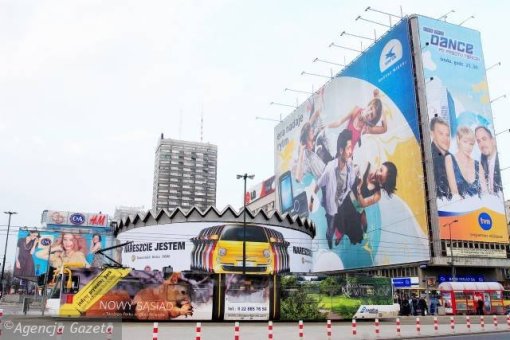
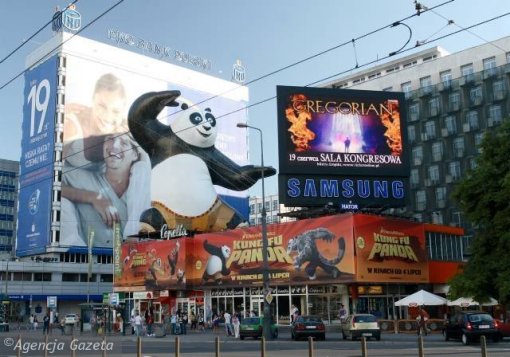
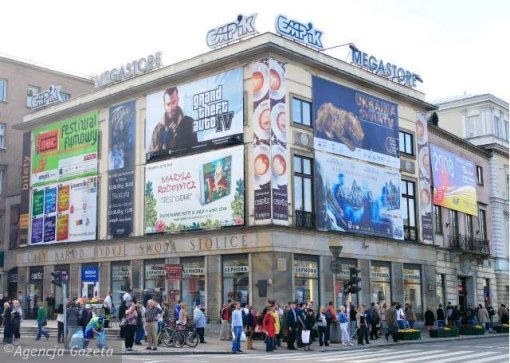
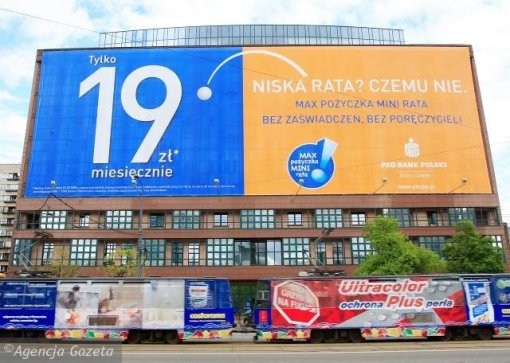
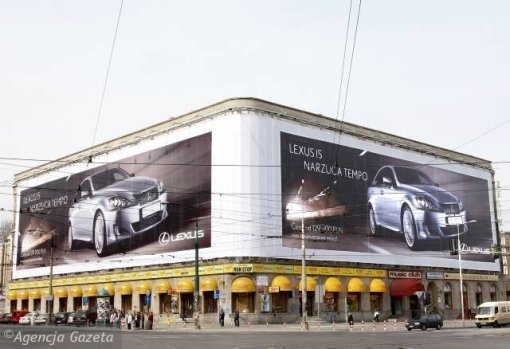

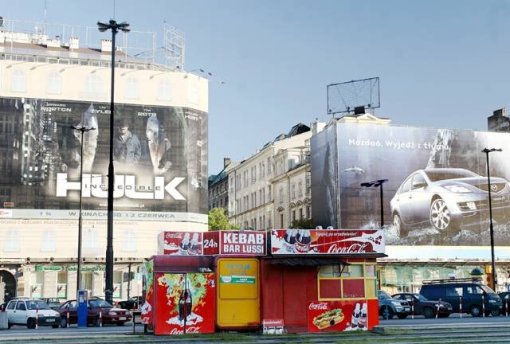
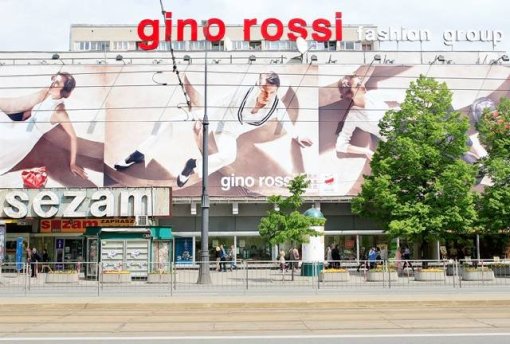
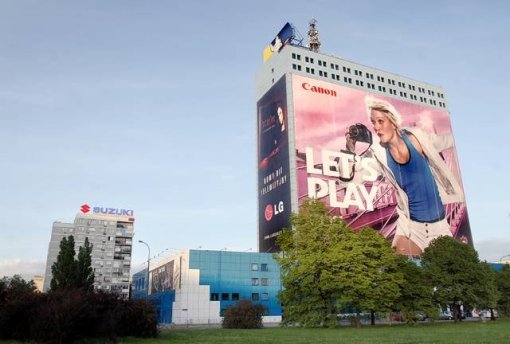
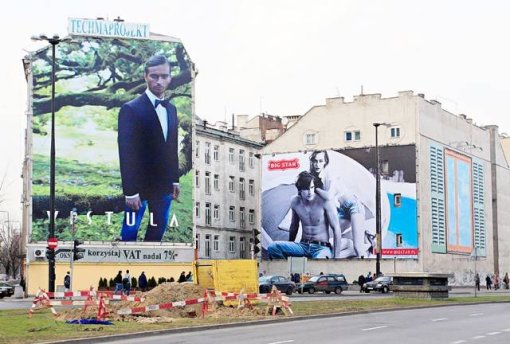

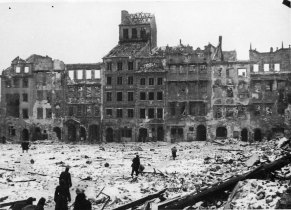
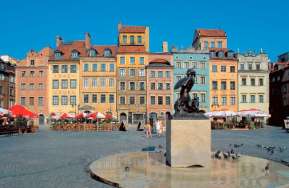
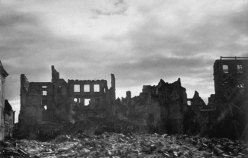
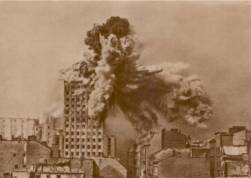
 Katarzyna Bielas: In your book there is a scene, in which the main character Jonatan and his partner Arik are purchasing a flat in Tel Aviv. When they haggle its price, Jonatan notices a camp number on the landlady’s arm. Without hesitation, he deciphers it – the date, the transport, the camp. Surprised woman drops the price, he agrees, and then feels distaste.
Katarzyna Bielas: In your book there is a scene, in which the main character Jonatan and his partner Arik are purchasing a flat in Tel Aviv. When they haggle its price, Jonatan notices a camp number on the landlady’s arm. Without hesitation, he deciphers it – the date, the transport, the camp. Surprised woman drops the price, he agrees, and then feels distaste. What does it mean? When did you first hear about Holocaust?
What does it mean? When did you first hear about Holocaust? Did you feel you were outside the community? How were you educated?
Did you feel you were outside the community? How were you educated? Which?
Which? One of your characters recalls, that when he was child he used to be ashamed of his mother, who desperately haggled a lower price, buying him clothes. Hate towards the poverty driven cleverness remained in him ever since.
One of your characters recalls, that when he was child he used to be ashamed of his mother, who desperately haggled a lower price, buying him clothes. Hate towards the poverty driven cleverness remained in him ever since. You needed freedom and you’ve become a diplomat. Why?
You needed freedom and you’ve become a diplomat. Why? Warsaw City Hall, Boom Change Foundation and Academy of Visual Arts, who were the organisers, say that the most interesting designs will be sold as original Warsaw souvenirs. All of the entrants were students of the Applied Art Department of the academy.
Warsaw City Hall, Boom Change Foundation and Academy of Visual Arts, who were the organisers, say that the most interesting designs will be sold as original Warsaw souvenirs. All of the entrants were students of the Applied Art Department of the academy. Does this sentence mean they will keep their seats? It is not clear. Probably, however, administrative courts that will deal with local officials’ appeals to
Does this sentence mean they will keep their seats? It is not clear. Probably, however, administrative courts that will deal with local officials’ appeals to 
LAST 5 COMMENTS